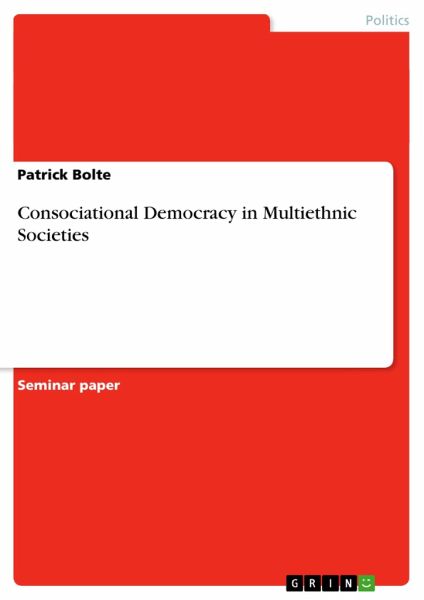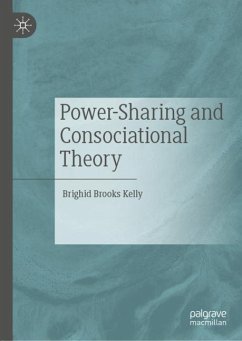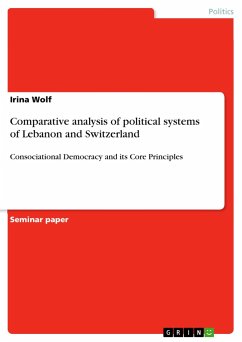
Consociational Democracy in Multiethnic Societies

PAYBACK Punkte
0 °P sammeln!
Seminar paper from the year 2004 in the subject Politics - Political Theory and the History of Ideas Journal, grade: 1,0 (A), Free University of Berlin (Otto-Suhr-Institute for Political Science), course: Empirisch-analytische Demokratietheorien, language: English, abstract: The central question of this paper is almost as old as the mere concept of consociationalism: to what extent can consociational democracy serve as the appropriate democratic form to divided and multiethnic societies? Soon after Arend Lijphart and Gerhard Lehmbruch had depicted consociational democracy as a viable alternati...
Seminar paper from the year 2004 in the subject Politics - Political Theory and the History of Ideas Journal, grade: 1,0 (A), Free University of Berlin (Otto-Suhr-Institute for Political Science), course: Empirisch-analytische Demokratietheorien, language: English, abstract: The central question of this paper is almost as old as the mere concept of consociationalism: to what extent can consociational democracy serve as the appropriate democratic form to divided and multiethnic societies? Soon after Arend Lijphart and Gerhard Lehmbruch had depicted consociational democracy as a viable alternative to majoritarian forms of democracy, a fierce debate about its wider applicability took root. Lijphart and Lehmbruch had presented the Netherlands, Belgium, Austria and Switzerland as cases of consociational democracies - but would the concept work in countries that are divided more deeply? For a good reason, the issue regained relevance and interest of scholars during the 1990s: Intra-state wars now took their tolls on an unprecedented scale - many of which had an ethnic dimension. It requires no statistical analysis to acknowledge ethnic divisions as one of the most serious sources of today's violent conflicts. In this context, it has been asked whether consociational democracy is a suitable and appropriate model to accommodate the diverse interests and cultures of groups in a multiethnic society. Is it a sustainable model able to prevent conflicts from turning violent? Should it be part of peacebuilding efforts in a post-conflict society? If applied, how should a consociational design look like?













